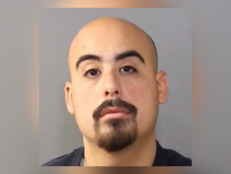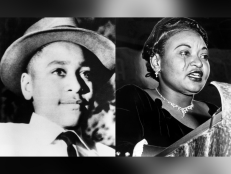The Questionable Case Against Julius Jones: Is the Wrong Man on Death Row?

Oklahoma Dept. of Corrections
EDMOND, OK — On July 28, 1999, a .25-caliber bullet fatally tore through the skull of Paul Scott Howell, after which the shooter sped off with his GMC Suburban.
The 45-year-old insurance company executive had been standing in his parents’ driveway, freshly back from buying school supplies with his daughters, ages 7 and 9, and his sister, Megan Tobey.
Tobey, who witnessed her brother’s murder up close, told detectives that the gunman was an African-American male who had a red bandana over his face and about a half-inch of hair sticking out from under a stocking cap.
Shortly thereafter, the Suburban turned up abandoned in a supermarket parking lot. A police informant who was known for dealing in stolen vehicles pointed cops in the direction of two local 19-year-olds who had buddied up while in high school, Chris “Westside” Jordan and Julius Jones.
Investigators reportedly interrogated Jordan first and got him to plead guilty to the carjacking, but pin the shooting on Jones. In doing so, Jordan avoided potentially facing the death penalty — but forced his longtime friend to do just that.
The following day, dozens of armed officers swarmed the home of Julius’s parents, Madeline and Anthony Jones. Julius lived there while attending the University of Oklahoma on an academic scholarship.
While seated in the back of a squad car, Christopher Jordan told searchers where to find a hiding space inside Julius’s room. Once there, officers discovered a red bandana and the .25-caliber semi-automatic firearm that had been used to shoot Paul Scott Howell.
Cops then tracked down Julius Jones at another friend’s house and promptly arrested him for first-degree murder.
Amid frenzied media coverage and public outcries for justice, the state quickly sought capital punishment for Jones.
District Attorney “Cowboy” Bob Macy, who would personally prosecute the case, had already sent 54 defendants to Death Row — more than any other D.A. in the nation.
Jones’s lawyers, on the other hand, were public defenders with no capital case experience. The trial commenced in February 2002. Ten days later, the jury deliberated for just over three hours before finding Jones guilty. A judge thereafter sentenced him to death.
From the get-go, Julius Jones has maintained his innocence. As Jones has been held on Death Row for the past 16 years, attorneys have filed appeals repeatedly. So far, the verdict has been upheld, but a growing movement on Jones’s behalf has been gaining momentum.
Despite the circumstantial evidence tying Jones to a red bandana and the murder weapon, numerous observers have pointed out elements of the investigation and prosecution that supporters argue should be considered in reexamining the entire case. These points include:
- Christopher Jordan changed his story at least six times while initially “confessing” to detectives. He admits to repeatedly changing his account, as well.
- The defense team failed to cross-examine Jordan or challenge him on the six prominent points where his story was inconsistent.
- The defense also failed to show jurors a photograph of Jones around the time of the murder, when he reportedly had a tight-cropped crew cut and could not have sported a “half-inch” of hair as described by the eyewitness.
- No witnesses testified on behalf of the defense.
- The state’s three prosecution witnesses reportedly received “sweetheart deal”plea bargains in exchange for their testimony.
- Racial politics may have skewed the trial. Jones is African-American. The jury consisted of 11 white members, one of whom had been convicted twice for felonies and failed to disclose it to the court.
- While arresting Jones, one white officer allegedly told him, “Run, [n-word]. I dare you.”
- In 2017, one of the jurors claimed to have told the judge about another juror saying, “They should just take the [n-word] out and shoot him behind the jail.”
- D.A. Bob Macy resigned following a scandal involving a forensic scientist faking evidence. Since then, prosecutorial misconduct has been discovered in approximately one-third of his 54 death-penalty convictions. More than half of those verdicts have since been vacated.
With Jones’s number of appeals running out, lawyers are hoping DNA evidence will exonerate him. In lieu of that, supporters have been petitioning Governor Mary Fallin to provide Jones with a grant of clemency.
In the meantime, Christopher Jordan got a 30-year sentence and received parole after 15. He lives now as a free man, while the “friend” he delivered to death’s doorstep continues to languish behind bars.
Watch Now:









